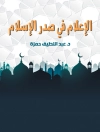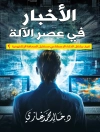Still and moving images are crucial factors in contemporary political conflicts. They not only have representational, expressive or illustrative functions, but also augment and create significant events. Beyond altering states of mind, they affect bodies and often life or death is at stake. Various forms of image operations are currently performed in the contexts of war, insurgency and activism. Photographs, videos, interactive simulations and other kinds of images steer drones to their targets, train soldiers, terrorise the public, celebrate protest icons, uncover injustices, or call for help. They are often parts of complex agential networks and move across different media and cultural environments. This book is a pioneering interdisciplinary study of the role and function of images in political life. Balancing theoretical reflections with in-depth case studies, it brings together renowned scholars and activists from different fields to offer a multifaceted critical perspective on a crucial aspect of contemporary visual culture.
Tabela de Conteúdo
Introduction – Jens Eder and Charlotte Klonk
Part I: Using images: metaphors, processes, affects
1 Images of the world, images of conflict – Ben O’Loughlin
2 Worldmaking frame by frame – Zeynep Devrim Gürsel
3 Working images: Harun Farocki and the operational image – Volker Pantenburg
4 Affective image operations – Jens Eder
5 Method, madness, and montage: assemblages of images and the production of knowledge – W.J.T. Mitchell
Part II: Images in warfare, insurgency and counterinsurgency
6 Image operations: refracting control from virtual reality to the digital battlefield – Timothy Lenoir and Luke Caldwell
7 Sensorship: the seen unseen of drone warfare – Tom Holert
8 Images that last? Iraq videos from You Tube to Wiki Leaks – Christian Christensen
9 Images of terror – Charlotte Klonk
10 The making and gendering of a martyr: images of female suicide bombers in the Middle East – Verena Straub
11 Photographic archives and archival entities – Ariella Azoulay
Part III: Image activism and political movements
12 Exposing the invisible: visual investigation and conflict – Stephanie Hankey and Marek Tuszynski
13 Human rights in an age of distant witnesses: remixed lives, reincarnated images and live-streamed co-presence – Sam Gregory
14 The hunger striker: a case for embodied visuality – Bishnupriya Ghosh
15 The visual commons: counter-power in photography from slavery to Occupy Wall Street – Nicholas Mirzoeff
Afterword – James Elkins
Index
Sobre o autor
Charlotte Klonk is a Fellow at the Institute of Advanced Study in Berlin












